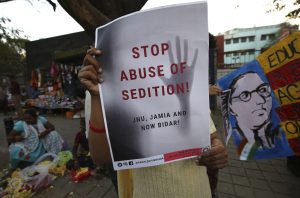Despite glaring contradictions between stated ideals and ground realities, there is no greater legitimizing force in politics today than democracy. Yet the rhetoric of democracy remains starkly at odds with its manifestations the world over. The rise of right-wing demagogues using populist slogans to exclude migrants from the Global South or target religious minorities at home has provoked an outcry against the “democracy deficit.”
But such prejudicial and undemocratic practices are hardly a new occurrence. The historical antecedents of the contemporary disconnect between democratic aspirations and authoritarian repression are traceable to myriad sources, especially the legacies of colonialism. Colonial rule was notable for extractive institutions, paraphernalia of laws to preserve order, measures for social engineering, and deploying varying levels of coercive power against subject populations.
Instead of promoting the freedoms and socioeconomic aspirations that motivated the nationalist struggle against colonialism, the post-World War II global order entrenched the oppressive and inequitable structures and policies of colonial states. Throughout the Cold War, one developing country after the other in Asia, Africa, and Latin America succumbed to some form of military authoritarianism, with the tacit consent of Washington and its allies in the advanced capitalist world. Platitudes about the United States’ commitment to promoting democratic values globally have never prevented Washington from supporting military dictators and authoritarian rulers when it has suited its policy goals.
The situation is no different today. India, the world’s largest democracy, has fallen precipitously on the freedom index and is now commonly referred to as a flawed democracy, if not an “electoral autocracy.” There is overwhelming evidence of discrimination and targeted violence against India’s Muslim minority under the incumbent government of Prime Minister Narendra Modi, most disturbingly in Kashmir, where people have been comprehensively denied basic human rights since at least August 2019.

































